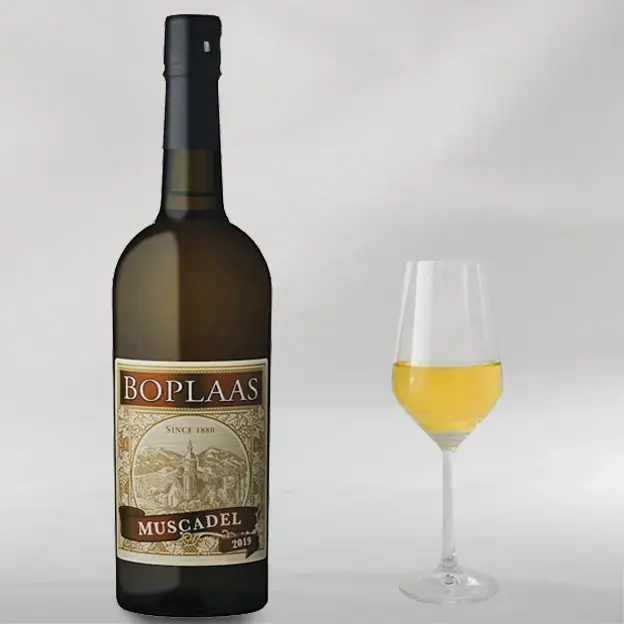Vin Africa
Top South African wines
Muscat
South African Muscat, also known as Muscat d'Alexandrie or Hanepoot, is one of the oldest and most traditional grape varieties grown in South Africa. This white grape variety is particularly known for the production of sweet wines, which are appreciated for their intense flavours and historical significance. The Muscat grape is widespread throughout the world and is characterised by its unmistakable aroma of grapes, floral notes and exotic fruits. Muscat has a long tradition in South Africa, dating back to the first plantings by Jan van Riebeeck in the 17th century. The variety was brought over from Europe by the Dutch settlers and played an important role in early wine production in the Cape.
The Constantia region, located just a few kilometres from Cape Town, is the historical centre of Muscat cultivation in South Africa. The cool climate of the region, influenced by the Atlantic Ocean, creates perfect conditions for the production of noble sweet Muscat wines. Muscat is also successfully cultivated in the semi-arid Klein Karoo region. Stronger, more intense wines are often produced here, which are vinified both dry and sweet.
Muscat wines are known for their distinctive, sweet flavours of ripe grapes, rose petals, orange blossom, honey, apricots and exotic fruits. These wines often have a strong sweetness that is balanced by a lively acidity. Nuances of nutmeg, spices and floral tones are also characteristic.
The majority of Muscat wines from South Africa are produced as sweet wines or dessert wines. These wines are characterised by their intense sweetness and high sugar content. They are produced either from noble rot grapes (as with Vin de Constance) or by fortifying with alcohol (fortified wines).
One of South Africa's most famous wines, Vin de Constance, is made from Muscat grapes. This noble sweet wine comes from the Constantia region and was famous worldwide in the 18th and 19th centuries. Even today, it is still considered one of the best dessert wines in the world. The grapes are often harvested late and sometimes affected by noble rot, which gives the wines their concentrated sweetness and complexity.
Muscat d'Alexandrie is known locally as Hanepoot, and many sweet dessert wines bear this name. These wines are fortified, which means that they are fortified with brandy during fermentation to preserve the natural sweetness while increasing the alcohol content.
Muscat is an excellent accompaniment to a variety of desserts, especially fruit tarts, tarts, pastries and sorbets. Its floral notes also harmonise well with oriental desserts such as baklava. The intense sweetness of Muscat makes it an ideal partner for strong cheeses such as blue cheese or matured goat's cheese.






